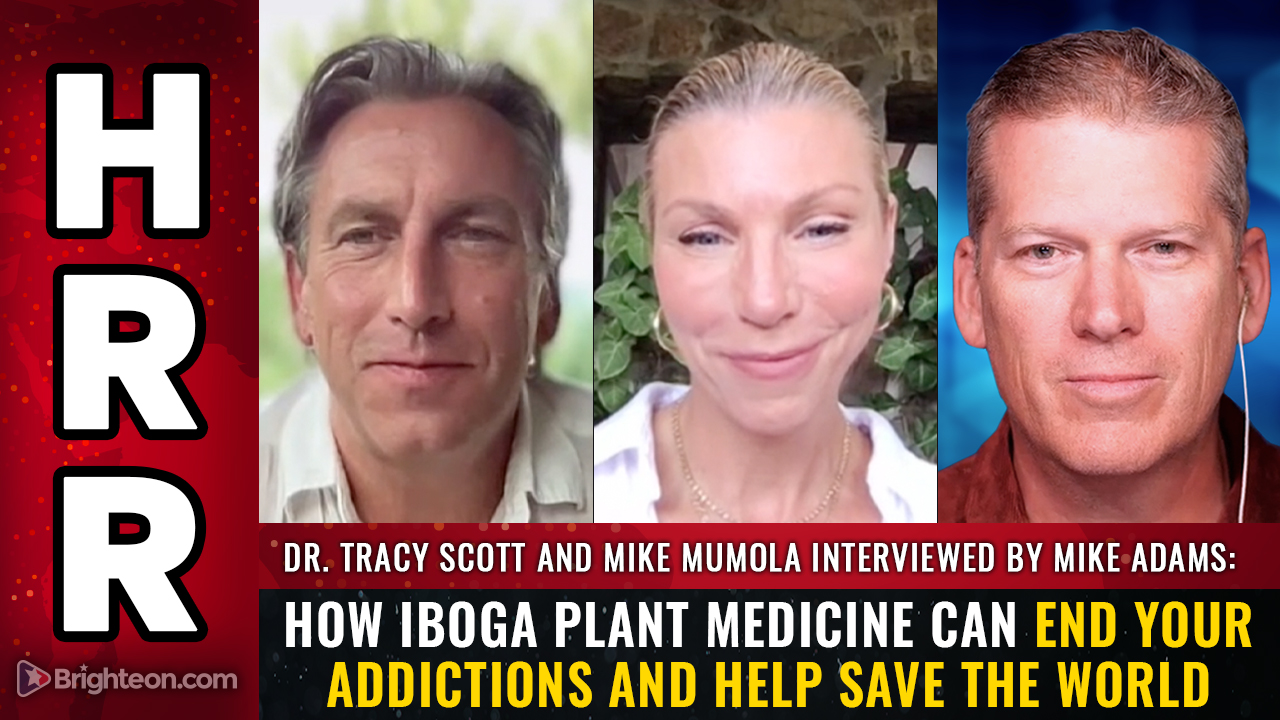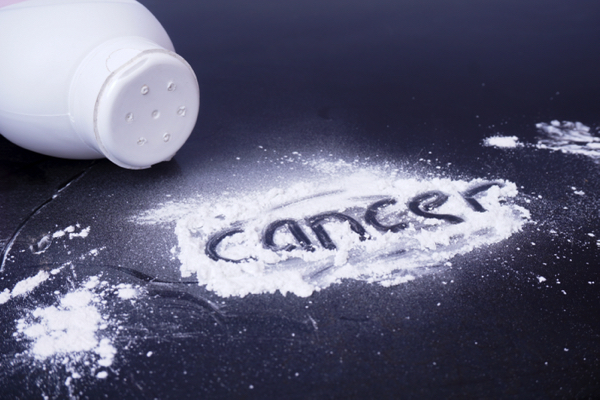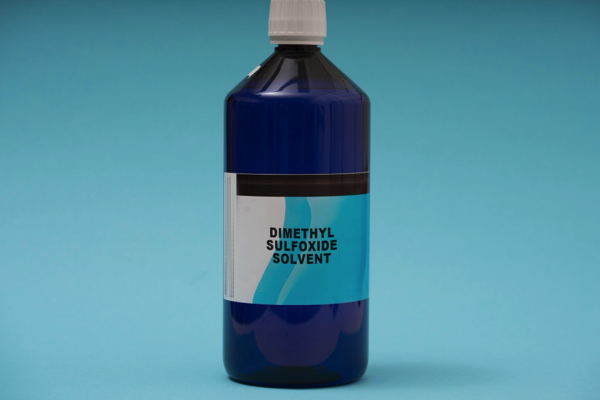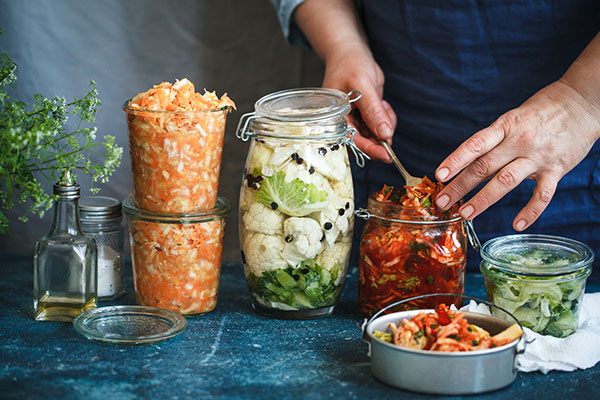Dangerous ingredients: EMULSIFIERS in food linked to Crohn’s disease and cancer
06/13/2025 / By Olivia Cook

- A 2025 U.K. study (ADDapt trial) found that nearly 50 percent of Crohn’s patients avoiding emulsifiers saw significant symptom relief, compared to only 31 percent in the emulsifier-consuming group. Gut inflammation dropped by over 50 percent in the emulsifier-free group.
- A large French study (2025) tied common emulsifiers (E471, carrageenan) to higher cancer rates — 46 percent increased prostate cancer risk, 24 percent higher breast cancer risk and 32 percent elevated breast cancer risk with heavy carrageenan consumption.
- Emulsifiers like polysorbate 80 and CMC disrupt the intestinal mucus layer, allowing harmful bacteria to trigger chronic inflammation – a driver of autoimmune diseases and cancer. This may explain rising global IBD rates.
- Emulsifiers (polysorbate 80, carrageenan, maltodextrin) are found in thousands of products (ice cream, plant-based milks, sauces) for texture and shelf life, yet their long-term safety was never fully assessed.
- Avoid emulsifiers by reading labels for chemical names (e.g., “-ate,” “-cellulose”), using apps (EWG Food Score, Yuka) to scan for additives, shopping perimeter for whole foods, replacing processed items gradually, ignoring marketing claims (“natural,” “low-fat”) and verifying ingredients.
Emulsifiers are chemicals often added to processed foods to improve texture, extend shelf life and keep ingredients from separating. But behind the convenience, new science is raising a red flag. Several recent studies have revealed disturbing links between common food emulsifiers and serious health conditions, like Crohn’s disease and cancer.
In January 2025, the Journal of Crohn’s and Colitis published a groundbreaking study known as the ADDapt trial, involving 154 patients across 19 medical centers in the United Kingdom. Researchers did something no one had tried before. They split Crohn’s disease patients into two groups, feeding one group emulsifier-free meals while the other unknowingly consumed foods containing them.
The results were nothing short of dramatic. Nearly half (49.4 percent) of the patients who avoided emulsifiers saw meaningful improvement in their symptoms – compared to just 31 percent in the group still eating them. Those avoiding emulsifiers were also more than twice as likely to enter remission and lab tests showed their gut inflammation dropped by over 50 percent.
For some, the results were life-changing. Genetic scientist Lewis Rands, who participated in the study, reported major symptom relief just by cutting out emulsifier-laden foods. His small but deliberate switch from Ben & Jerry’s (which contains multiple emulsifiers) to Haagen-Dazs (which does not) was one of several dietary shifts that allowed him to reclaim a normal life.
But Crohn’s disease is only part of the story. Another massive study published in PLOS Medicine in February 2025 tracked over 92,000 French adults for nearly seven years. The study looked at various emulsifiers, including mono- and diglycerides of fatty acids (commonly labeled as E471) and found alarming connections to cancer.
Participants consuming the highest levels of these emulsifiers had:
- 46 percent increased risk of developing prostate cancer
- 24 percent risk of developing breast cancer
- 15 percent higher risk of developing cancer overall
Another emulsifier, carrageenan, showed similarly troubling associations. Heavy consumers experienced a 32 percent higher rate of breast cancer. These aren’t small increases. They suggest that routine consumption of processed foods may be silently increasing cancer risk for millions.
How do emulsifiers affect the body?
To understand how emulsifiers can do this kind of damage, look into another February 2025 study in Alimentary Pharmacology & Therapeutics. Researchers found that emulsifiers, like polysorbate 80 and carboxymethyl cellulose (CMC) interfere with the protective mucus layer that lines the intestines.
When this barrier is compromised, harmful bacteria can move in too close to the gut wall. This doesn’t just cause digestive discomfort. It triggers chronic inflammation, a known driver of autoimmune diseases and cancer. Scientists now suspect these changes may help explain the rising global rates of inflammatory bowel disease (IBD), especially in countries with high processed food consumption.
And here’s the kicker, these dangerous food additives are everywhere and most people have no idea what they actually do. Here are some common emulsifiers to watch out for:
- Polysorbate 80 (used in over 2,300 food products) helps blend oil and water, giving foods like ice cream, creamy dressings and sauces a smooth, uniform texture.
- Carrageenan (added to more than 8,100 food products) is used as a thickener and stabilizer, especially in plant-based milks and deli meats, to keep ingredients from separating.
- Maltodextrin (used in nearly 13,000 food products), a starchy powder, is added to improve shelf life, thicken processed foods and create that “just right” mouthfeel in sauces and snacks.
While they serve practical roles for food manufacturers – making foods look better, last longer and feel more appealing on the tongue – these same chemicals have been linked to gut barrier damage, inflammation and chronic disease in recent peer-reviewed studies.
Former U.S. Food and Drug Administration (FDA) Commissioner Dr. Robert Califf has acknowledged that when many food additives were approved decades ago, science had not yet uncovered the complex role of the gut microbiome and the immune system. As a result, long-term effects on gut health simply weren’t part of the safety evaluations at the time.
Avoiding these dangerous ingredients
Here are some tips on how to avoid gut-damaging ingredients without overthinking every bite:
- Read the ingredients list – not just the nutrition label. Calories don’t tell the whole story. Look out for chemical sounding words (especially those ending in -ate or -cellulose).
- Get familiar with the usual suspects – additives and chemicals in thousands of processed (highly or ultra-processed) foods – polysorbate 80, carboxymethyl cellulose (CMC), carrageenan, mono- and diglycerides of fatty acids (E471) and malodextrin.
- Prioritize whole foods and those with minimal ingredients – five or fewer ingredients when possible.
- Mobile phone apps like EWG’s Food Score or Yuka can instantly scan ingredient lists and flag questionable additives.
- Don’t trust buzzwords. “Natural,” “low-fat,” “sugar-free” or “immune-boosting” mean nothing without clean ingredients. Always verify by flipping the package over.
- Shop the perimeter of the store. The middle aisles are home to most processed foods. Fresh, organically-grown produce, meat and dairy live around the edges.
- Try replacing one processed item each week with a cleaner option.
The gut is often called “the second brain” for a reason. It influences the immune system, hormone regulation, mental health and long-tern disease risk. Making smarter choices also translates to investing in whole-body resilience.
Science is catching up to what many people with gut issues have felt for years: What people eat matters. It’s not just in terms of calories or fat, it matters at the cellular level, at the microbiome level and at the inflammation level.
Watch the following video about the impact of processed foods and emulsifiers on gut health.
This video is from the Daily Videos channel on Brighteon.com.
More related stories:
Magic, non-melting ice cream? Emulsifiers in common foods linked to inflammation and disease risks.
This overlooked class of food additives is linked to Crohn’s disease and cancer.
Sources include:
Submit a correction >>
Tagged Under:
chemicals, clean food watch, crohns disease, Dangerous, emulsifiers, food science, gut health, inflammatory bowel disorder, ingredients, poison, research, stop eating poison, toxic ingredients, toxins
This article may contain statements that reflect the opinion of the author





















